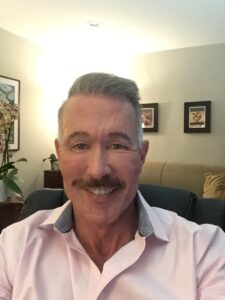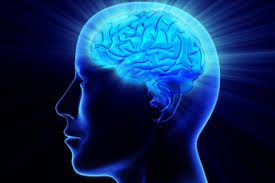
Mental Health Aspects of Sexual Health for Gay Men
As a gay men’s specialist psychotherapist and coach for now 30 years (in 2022), and as a Certified Psychiatric Social Worker, and now AASECT Certified Sex Therapist, perhaps it follows that I might be interested in sharing some thoughts about the intersection of psychiatric disorders, physical and mental sexual health, and their representation in gay men. My recent sessions with clients in my private practice illustrate this intersection.
I have previously written about the “six principles of sexual health” (coined by Michael Vigorito, LCSW, and Doug Braun-Harvey, LMFT, in their book, Treating Out of Control Sexual Behavior), and I applied those more specifically to gay men in a previous article (available here). But now I want to examine more closely the specific mental health (psychiatric) aspects of a discussion of sexual health, especially for gay men, because even in sexual health discussions, gay men are still under-represented in the clinical/academic literature and certainly in clinical practice training for all forms of psychotherapists.
My background as a Certified Psychiatric Social Worker (part of my graduate training at USC) led me to work with people who have severe/persistent mental health disorders (as catalogued in the DSM-5, (American Psychiatric Association, 2013)), which are disorders that often (not always) require “psychopharmacological intervention” (aka, taking meds). When someone who has a diagnosable psychiatric disorder (reminder: “sex addiction,” “love addiction,” or “porn addiction” are NOT legitimate, recognized clinical diagnoses!), it’s possible that they experience not only difficulty in their “social or occupational functioning” and quality of life, but difficulty more specifically in their sex life. One of the mantras I use in my practice for what I do is “helping clients improve their quality of life by way of improving the quality of their sex life” (although the majority of my clinical practice is actually not sex therapy, yet; it’s more about gay men’s interpersonal relationship and career improvement, which I provide a lot of coaching for, worldwide, if you’re interested).
One of the lesser discussions when someone sees a psychotherapist and/or a psychiatrist (MD) for help with a diagnosable psychiatric disorder is about their sex life. The notorious side effects of the use of SSRI anti-depressant medications (such as delayed ejaculation and/or diminished libido) are far too often dismissed by their prescribing physician, especially for gay men, whose sexual activities are very frequently ignored or in some way discouraged by their physicians (unless they are gay-identified or gay-allied, which is more rare than you might think). This is why so many gay men come to me with these concerns, because they often feel “un-heard” or somehow made to feel uncomfortable talking about their sexual concerns with straight-identified providers (especially female ones), or even gay male providers who aren’t specialists in gay men’s mental and sexual health, which I find especially unfortunate within our own community, but I see it often (especially around gay male “sex addiction” therapists, with so much internalized homophobia/heterosexism, or inappropriately acting out their rage through their work against previous partners who “betrayed” them by breaking a monogamy agreement).
Therefore, let’s fix that now. Let’s discuss some very common psychiatric diagnoses, and the sexual health aspects of them, based on real cases (disguised for confidentiality) from my daily, 30-year practice with gay men:
 Depression – Part of the symptoms of clinical depression (Major Depressive Disorder, mild/moderate/severe, with or without psychotic features) is an impact of diminished involvement in “pleasurable activities,” aka “anhedonia” (“without pleasure”). Someone who is depressed might have lost interest in sex, or, they are even more depressed that their depression keeps them from feeling “horny” or able to function sexually (arousal, erection, orgasm). The social withdrawal symptom of depression can cause the client/patient (I use those terms interchangeably) to socially isolate, giving them fewer opportunities to meet dates or sexual partners in the first place, or to be sexual with their long-term partner. If they receive a medication that is designed to help their depressed mood and improve functioning (like being able to work), they might be depressed again that while the medication works for their mood, the sexual side-effects are the price they pay for it. It can be a vicious cycle that makes a guy feel stuck between a rock and, well, a not-so-hard place.
Depression – Part of the symptoms of clinical depression (Major Depressive Disorder, mild/moderate/severe, with or without psychotic features) is an impact of diminished involvement in “pleasurable activities,” aka “anhedonia” (“without pleasure”). Someone who is depressed might have lost interest in sex, or, they are even more depressed that their depression keeps them from feeling “horny” or able to function sexually (arousal, erection, orgasm). The social withdrawal symptom of depression can cause the client/patient (I use those terms interchangeably) to socially isolate, giving them fewer opportunities to meet dates or sexual partners in the first place, or to be sexual with their long-term partner. If they receive a medication that is designed to help their depressed mood and improve functioning (like being able to work), they might be depressed again that while the medication works for their mood, the sexual side-effects are the price they pay for it. It can be a vicious cycle that makes a guy feel stuck between a rock and, well, a not-so-hard place.
Solutions: The challenge with this problem is that it has no “magic bullet” solution. However, remedies that have worked with clients in my practice include having the boldness and assertive communication skills to tell their prescribing psychiatrist that they are, indeed, having sexual side-effects. I’ve seen psychiatrists prescribe Wellbutrin into their regimen, which can have the effect of mitigating sexual side-effects. Another solution, via Cognitive Therapy, is to really explore the “risks versus benefits” of having improved mood and functioning, such as work and relationships, but at the cost of some diminished sexual capacity, and what might that mean for them, existentially, in their quality of life, if they “really” have to choose. Another solution is to identify what “still works” in their sexual repertoire. Maybe they are more “bottom” anyway, so ED or DE as side-effects can have somewhat less impact, and there is still “fun to be had” with sexual partners (a domestic partner/spouse, or a “trick”).
Other options might include changing expectations in sex, and challenging this pervasive societal idea that the only “legitimate” sex is fully-erect, penetrative, to mutual orgasm, with perfect timing, all tidy, etc., and instead might be more about intimate “sexual play” using hands, toys, bondage equipment, or sensual tools (ice cubes, hot wax, feathers, pinwheels, flogs, electro-play devices, cosplay, role-play, foods, etc.). It’s about the “playful quality time” spent with a partner, which can be rewarding and fun, and build intimacy or fraternal bonding.
Sometimes the use of an ED drug can help, such as Viagra, Levitra, Cialis, or the injectable compounded Trimix or Quadmix formulations. It’s important that these solutions be learned (through “patient education” by the (MD) psychiatrist, urologist, or endocrinologist, or the psychotherapist), identified, implemented, evaluated, and then re-implemented with customized adjustments. Troubleshooting sexual side-effects is really an ongoing, monitoring thing, and it can include some trial-and-error strategies that do require patience.
 Anxiety – Disorders such as Generalized Anxiety Disorder, specific phobias, panic disorder, adjustment disorder with anxiety, and others can have their influence on sexual health. This is probably the most common complaint I hear from clients. Performance anxiety can certainly affect erectile dysfunction (my previous article on the “cognitive causes and cures” of ED is here). Anxious thoughts in sex can include a lot of “what if”: What if I don’t get hard? What if I don’t climax? What if I’m not big enough? What if I have a “sexual hygiene accident” (in bottoming)? What if he asks me to do something I’m not ready for (such as fisting or bondage)? Lots of bad things happen to our thoughts and emotions the second we say “what if” followed by a negative statement (the antidote to this is immediately following that with a “what if” statement followed by something positive, like, “What if I just relax and improvise and this ends up being totally fun?”).
Anxiety – Disorders such as Generalized Anxiety Disorder, specific phobias, panic disorder, adjustment disorder with anxiety, and others can have their influence on sexual health. This is probably the most common complaint I hear from clients. Performance anxiety can certainly affect erectile dysfunction (my previous article on the “cognitive causes and cures” of ED is here). Anxious thoughts in sex can include a lot of “what if”: What if I don’t get hard? What if I don’t climax? What if I’m not big enough? What if I have a “sexual hygiene accident” (in bottoming)? What if he asks me to do something I’m not ready for (such as fisting or bondage)? Lots of bad things happen to our thoughts and emotions the second we say “what if” followed by a negative statement (the antidote to this is immediately following that with a “what if” statement followed by something positive, like, “What if I just relax and improvise and this ends up being totally fun?”).
Solutions: Anxiety is a disorder about emotionally and cognitively over-estimating the risk of harm in something. It’s a function of our psychological defense mechanisms, which is just one part of our minds trying to protect us from a threat “it” thinks is dangerous, but our rational mind knows better. So, we have to learn to “talk back” to our anxiety. Say, “Hey, Anxiety, thanks, I know you’re just trying to protect me, but, hey, I can handle this. Back off. Really. I got this.” It’s a cognitive intervention that you do on yourself. Another exercise for anxiety is “grounding.” Orient yourself to where you are. Check in with your senses: Where am I? What do I see? What do I smell? What do I hear? What do I taste? What do I touch? This can help to get you “out of your head,” a term I hear a lot, especially regarding anxiety about both topping (my article on that is here) and bottoming (my article on that is here). Coping with anxiety is re-setting our internal alarms and realizing that something that our lizard brain thinks is a big deal is actually “small stuff” that we don’t need to sweat. Sex is supposed to be fun, not some kind of anxiety endurance test. Keep it that way.
 Obsessive-Compulsive Disorder (OCD) – I consider OCD really to be a form of anxiety, within the “family” of anxiety-based disorders, because it plays on fears and makes them irrational, such as believing something “bad” will happen if you do or don’t do something completely unrelated to the situation. Recently, my client, “Jason” was exploring how his long-term OCD was affecting and manifesting in his sex life, particularly a fear of ED and being embarrassed with his boyfriend. In his individual therapy in his home state, his therapist helped him as an OCD specialist more broadly. In his life coaching with me, we talked about options for understanding how the OCD, which had originally manifested in the more traditional ways, was now encroaching on his ability to relax and enjoy his sex life. It was about what to re-focus on in sexual situations to bring it out of the anxiety, and into the fun of the empowered adult. (My article on how to live with a partner with OCD is here.)
Obsessive-Compulsive Disorder (OCD) – I consider OCD really to be a form of anxiety, within the “family” of anxiety-based disorders, because it plays on fears and makes them irrational, such as believing something “bad” will happen if you do or don’t do something completely unrelated to the situation. Recently, my client, “Jason” was exploring how his long-term OCD was affecting and manifesting in his sex life, particularly a fear of ED and being embarrassed with his boyfriend. In his individual therapy in his home state, his therapist helped him as an OCD specialist more broadly. In his life coaching with me, we talked about options for understanding how the OCD, which had originally manifested in the more traditional ways, was now encroaching on his ability to relax and enjoy his sex life. It was about what to re-focus on in sexual situations to bring it out of the anxiety, and into the fun of the empowered adult. (My article on how to live with a partner with OCD is here.)
Solutions: Jason got a lot of mileage from the “five senses” exercise, as well as more profoundly accepting himself as a proud “Top” in gay sex and validating his right to exercise this, including some dominance, with a consenting partner. Like many anxiety interventions, practice helps reduce symptoms and help you become de-sensitized over time. It’s important that in the “mainstream” discussion of OCD treatment, such as the “exposure and response prevention” technique for compulsions, or coping with intrusive, obsessive thoughts, that the sexual aspects be made “OK” to discuss, without stigma or fear of rejection from a mainstream psychiatrist or psychotherapist. This is an “access to care” and “patients rights” issue, as all gay-affirmative medical and mental health care should be.
- Attention Deficit Disorder (Adult) (ADD) – This affects many of the gay men I work with, so much so that I wonder if the neurobiological aspects of both ADD and OCD (located in the brain’s amygdala) are not somehow over-represented in gay men (research and time will tell). ADD in relationships (my article on that is here) presents challenges, but it’s not insurmountable with communication and adaptive coping behaviors. But distractibility in sex can make your partner feel devalued that you’re not “in the moment” with him, making him possibly feel annoyed or abandoned. Guys with ADD might also need more, or different, stimulation in sex in order to have fun. Psychological research shows that some people are just more “stimulation-seeking” than others (think roller-coaster or extreme sports enthusiasts). There are published psychological tests for this (called “psychometric instruments”) that measure this.
Solutions: The same cognitive-behavioral therapy approaches that help “generic” ADD symptoms can be modified to apply to sex. Maybe your partner knows how to “re-direct” and refocus you to the activity at hand. Maybe the person with ADD is especially suited to group scene play or being “all over the place” in a fun way at a bath house or sex club. Just a little bit of incorporation of the sexual concerns and aspects of ADD treatment will go a long way in validating the person living with ADD in this 360-degree way for a more comprehensive approach, because, let’s face it, people with ADD (or any psychiatric disorder) are still consenting adults who have sexual appetites “just like normal people” (a facetious and slightly sarcastic joke I like to use to illustrate how people with psychiatric disorders of any kind can be stigmatized and “robbed” of the expectation that they have normal drives for life, liberty, and happiness as anyone else, including sex, but are too often infantilized as eunuchs just because they have a mild-to-severe psychiatric disability).
 Post-traumatic Stress Disorder (PTSD) – The sexual mental health of gay men living with PTSD is an especially poignant topic in my practice. Survivors of sexual assault, childhood sexual abuse, combat injury, vehicular accident injury, sports injury, or chronic illness can all have PTSD symptoms in the aftermath of a traumatic event(s). The partners of gay men with PTSD need to be especially patient so that sex with their partner does not cause “triggering” or “re-injury.” I always say that the number-one most important concept in trauma recovery is “reclaiming,” which is reclaiming the life/outlook/functioning that you would have had, had your perpetrator not indulged themselves in their narcissistic antics that harmed you in the first place. You have a right to enjoy an adult, satisfying, gay male sexuality, just like gay men who are not trauma survivors. Slowly and carefully “reclaiming” your sexual repertoire to celebrate your (and your partner’s) bodies is an important part of recovery, and a big “fuck you” to your perpetrator that he (or she) didn’t knock you down permanently; you get right back “up” again, including in “that” way.
Post-traumatic Stress Disorder (PTSD) – The sexual mental health of gay men living with PTSD is an especially poignant topic in my practice. Survivors of sexual assault, childhood sexual abuse, combat injury, vehicular accident injury, sports injury, or chronic illness can all have PTSD symptoms in the aftermath of a traumatic event(s). The partners of gay men with PTSD need to be especially patient so that sex with their partner does not cause “triggering” or “re-injury.” I always say that the number-one most important concept in trauma recovery is “reclaiming,” which is reclaiming the life/outlook/functioning that you would have had, had your perpetrator not indulged themselves in their narcissistic antics that harmed you in the first place. You have a right to enjoy an adult, satisfying, gay male sexuality, just like gay men who are not trauma survivors. Slowly and carefully “reclaiming” your sexual repertoire to celebrate your (and your partner’s) bodies is an important part of recovery, and a big “fuck you” to your perpetrator that he (or she) didn’t knock you down permanently; you get right back “up” again, including in “that” way.
Solutions: PTSD has many popular treatments, such as Trauma-Focused Cognitive Behavioral Therapy (TF-CBT), Eye Movement De-sensitization and Reprocessing (EMDR), and psychodynamic techniques. My concern is that many of these approaches can overlook that recovery from PTSD and reclaiming (that word again) your optimal functioning includes your sexual functioning, and this may or may not be addressed in mainstream therapy, especially if we’re talking about how gay men can enjoy giving oral sex when their perpetrator orally violated them, or enjoy receiving anal sex when their perpetrator penetrated them with an adult penis or a foreign object. These kinds of sensitive considerations need their own discussion to validate more specifically the gay man’s PTSD recovery experience. Techniques might include going at very slow pace with your partner in oral or anal sex, discussing if and how you might be triggered, and “in the moment” reframing the stimulation from alarming (such as during the abuse or trauma) to pleasurable, with the adult prerogative to do what you want with your own body with another consenting (key word) adult.
 Body Dysmorphic Disorder – Another challenge for gay men is when they have Body Dysmorphic Disorder (and possibly an eating disorder) that can psychologically distort your own perception about your appearance, body, or part of your body. It’s a puzzling phenomenon. Many people have discussed how socio-cultural pressures on women worldwide (but especially in Western countries) can lead to women feeling “bad” about their figures, and what they are “supposed” to look like from media images and fashion influences. Similarly, gay men can feel like they’re being judged for how they look, sometimes by others but often just by their fellow gay men. The pressures to look young, trim or muscular, esthetically hairy or hairless, and overall fashionable can be intense (look at social media like Instagram or Tik-Tok). Some say that BDD is related to OCD, in that it can feel like an obsessive preoccupation with minor flaws. Anxiety about a “big nose” or a “small penis” or even “small calves” or thinning hair can all be examples, from a minor case of anxieties to very severe and obtrusive obsessive thoughts. Guys with these feelings might not feel “good enough” to present to a partner for sex, and then their sexual mental health is impaired and their quality of life for feeling socially/sexually isolated.
Body Dysmorphic Disorder – Another challenge for gay men is when they have Body Dysmorphic Disorder (and possibly an eating disorder) that can psychologically distort your own perception about your appearance, body, or part of your body. It’s a puzzling phenomenon. Many people have discussed how socio-cultural pressures on women worldwide (but especially in Western countries) can lead to women feeling “bad” about their figures, and what they are “supposed” to look like from media images and fashion influences. Similarly, gay men can feel like they’re being judged for how they look, sometimes by others but often just by their fellow gay men. The pressures to look young, trim or muscular, esthetically hairy or hairless, and overall fashionable can be intense (look at social media like Instagram or Tik-Tok). Some say that BDD is related to OCD, in that it can feel like an obsessive preoccupation with minor flaws. Anxiety about a “big nose” or a “small penis” or even “small calves” or thinning hair can all be examples, from a minor case of anxieties to very severe and obtrusive obsessive thoughts. Guys with these feelings might not feel “good enough” to present to a partner for sex, and then their sexual mental health is impaired and their quality of life for feeling socially/sexually isolated.
Solutions: Disorders like OCD and BDD have been known in research to respond well to Cognitive Behavioral Therapy, but they take time and patience, for both clients and therapists. Deep-seated negative beliefs about the self can take a while to untangle. But acknowledging the cultural context and the pressures that specifically gay men face can be an important part of treatment, because we live in the “person in environment” setting. If gay men were coping with anxieties a hundred years ago, they might feel very differently because they weren’t bombarded with constant images of the idealized male physique through mainstream media and social media (as well as porn). Applying critical thinking like “Instagram Is Not Real Life” can be important to keep perspective, as well as validating that the “legitimate” gay male experience is not limited to some kind of idealized physique or appearance or luxurious lifestyle. Just like we need to validate gay men’s experience that they are not any “less legitimate” for being gay, they are also no less “legitimate” for being outside the social media ideal of what gay men “should” look like. There is a certain amount of an angry defiance that is important here, to resoundingly reject pressures and validate your right to be who you are. Now, if you want to be involved in bodybuilding, physique sculpting, yoga, or sports of any kind, that’s different; that’s an empowered choice that comes from you, your interests, your values, and your health plan. But we should never be a “slave to fashion” unless fashion is really fun for us. It takes a lot of self-reflection and critical thinking to differentiate these, and I think too often gay men don’t have that kind of encouragement. As a leather man and biker, I’ve been labeled “weird” more than once, and I’m OK with that; I’m having fun with it.

7. Personality Disorders: This category of DSM-5 based personality disorders is too broad to discuss enough here, but my previous articles on “personality disorders in the workplace” and how they affect gay men’s professional lives are here, here, and here. But when personality disorders of all kinds affect gay men’s sexual mental health, they might include these:
- Narcissistic Personality Disorder – We all know gay men who are vain, self-involved, non-empathic, and obnoxious. This is often seen as a psychological defense against feeling small or “less than” and while it happens to straight people all the time (Donald Trump is the leading example), for gay men, it can be a response to being belittled in early childhood. Personality disorders are believed to develop starting at about age three; they are not really considered biologically based like other psychiatric disorders, but are more developmental, that pervasively affect interpersonal relationships in a certain pattern of behavior toward others.
- Borderline Personality Disorder – This disorder can be in the aftermath of trauma, where a person has a chaotic personality structure that can include relationship turbulence, “drama”, intense fear of abandonment, and a sense that nothing you do to reassure them or help them is ever enough. This might manifest sexually as lots of frequent sex, hot/cold relationships, manipulation, or love you/hate you dynamics.
- Schizoid Personality Disorder – Personality disorders like these avoid generally avoiding people, which might create the “asexual” identity and a general avoidance of all interpersonal relationships, including sexual ones, despite having a natural biological sex drive.
- Antisocial Personality Disorder – Also known as a type of “sociopath,” the sexual connection can include severely disordered (criminal) people who exploit others sexually and victimizingly, such as Jeffrey Dahmer or Ted Bundy, two famous serial killers. If someone is involved with someone like this, it’s often hurtful, from feeling dismissed or devalued, or all the way into criminal behavior and is perhaps the worst example of a psychiatric disorder applied to sexuality.
Solutions: The solutions to personality disorders are notoriously elusive. It’s not so much about treatment or certainly not “cures” as much as some kind of adaptive coping, which often involves intense therapy such as Dialectical Behavioral Therapy or psychoanalysis. This is a complex situation and “coping” and “quality of life” can be challenging but still noble goals of treatment.
 Other Disabilities (Autism Spectrum Disorder, Dementias, Developmental Disabilities, Corporal Disabilities) – The DSM-5 is a thick book. To catalog the seemingly countless psychiatric disabilities that a person can face is overwhelming, and that’s just the Western/American ones identified by the American Psychiatric Association. Other culture-specific phenomena exist in other countries and peoples. When someone has a developmental disability or perhaps a neurobiological deficit, injury, or illness (such as dementia), much starts to involve patients’ rights and their right to adult pleasures such as sex, but also with a careful consideration of consent, which can be impaired with cognitive impairment, and can lead to an ugly exploitation or victimization of people. The discussion of what “consent” looks like with someone with a cognitive or neurobiological disability is a complex one. What I think is important is not to just “write off” people with these conditions as automatically “ineligible” for sexual contact just because they are disabled. It’s an important assessment from their care team of what might be ethical in those cases, and what is in the patient’s best interest, and who gets to make that decision. Gay men can be among the numbers of people with such disorders, and my hunch, unfortunately, is that the situation is worse for them than for straight people with the same conditions because of the aforementioned “ignoring” or “invalidating” of gay men’s sex, people with disabilities’ sex, and certainly with the two combined. Like so much of this, a careful discussion of ethics is required.
Other Disabilities (Autism Spectrum Disorder, Dementias, Developmental Disabilities, Corporal Disabilities) – The DSM-5 is a thick book. To catalog the seemingly countless psychiatric disabilities that a person can face is overwhelming, and that’s just the Western/American ones identified by the American Psychiatric Association. Other culture-specific phenomena exist in other countries and peoples. When someone has a developmental disability or perhaps a neurobiological deficit, injury, or illness (such as dementia), much starts to involve patients’ rights and their right to adult pleasures such as sex, but also with a careful consideration of consent, which can be impaired with cognitive impairment, and can lead to an ugly exploitation or victimization of people. The discussion of what “consent” looks like with someone with a cognitive or neurobiological disability is a complex one. What I think is important is not to just “write off” people with these conditions as automatically “ineligible” for sexual contact just because they are disabled. It’s an important assessment from their care team of what might be ethical in those cases, and what is in the patient’s best interest, and who gets to make that decision. Gay men can be among the numbers of people with such disorders, and my hunch, unfortunately, is that the situation is worse for them than for straight people with the same conditions because of the aforementioned “ignoring” or “invalidating” of gay men’s sex, people with disabilities’ sex, and certainly with the two combined. Like so much of this, a careful discussion of ethics is required.
If you, or someone you know (such as a partner or friend) are struggling with the mental health aspects of sexual health, try to “move the needle” in some way to move from relative isolation and “suffering in silence” to being actively involved in care (such as therapy or coaching) that might help reduce the negative impacts of psychiatric or psychological influences on sex.

For more information on my therapy or coaching services, email me at Ken@GayTherapyLA.com, or text/call me at 310-339-5778.


 Depression – Part of the symptoms of clinical depression (Major Depressive Disorder, mild/moderate/severe, with or without psychotic features) is an impact of diminished involvement in “pleasurable activities,” aka “anhedonia” (“without pleasure”). Someone who is depressed might have lost interest in sex, or, they are even more depressed that their depression keeps them from feeling “horny” or able to function sexually (arousal, erection, orgasm). The social withdrawal symptom of depression can cause the client/patient (I use those terms interchangeably) to socially isolate, giving them fewer opportunities to meet dates or sexual partners in the first place, or to be sexual with their long-term partner. If they receive a medication that is designed to help their depressed mood and improve functioning (like being able to work), they might be depressed again that while the medication works for their mood, the sexual side-effects are the price they pay for it. It can be a vicious cycle that makes a guy feel stuck between a rock and, well, a not-so-hard place.
Depression – Part of the symptoms of clinical depression (Major Depressive Disorder, mild/moderate/severe, with or without psychotic features) is an impact of diminished involvement in “pleasurable activities,” aka “anhedonia” (“without pleasure”). Someone who is depressed might have lost interest in sex, or, they are even more depressed that their depression keeps them from feeling “horny” or able to function sexually (arousal, erection, orgasm). The social withdrawal symptom of depression can cause the client/patient (I use those terms interchangeably) to socially isolate, giving them fewer opportunities to meet dates or sexual partners in the first place, or to be sexual with their long-term partner. If they receive a medication that is designed to help their depressed mood and improve functioning (like being able to work), they might be depressed again that while the medication works for their mood, the sexual side-effects are the price they pay for it. It can be a vicious cycle that makes a guy feel stuck between a rock and, well, a not-so-hard place. Anxiety – Disorders such as Generalized Anxiety Disorder, specific phobias, panic disorder, adjustment disorder with anxiety, and others can have their influence on sexual health. This is probably the most common complaint I hear from clients. Performance anxiety can certainly affect erectile dysfunction (my previous article on the “cognitive causes and cures” of ED is
Anxiety – Disorders such as Generalized Anxiety Disorder, specific phobias, panic disorder, adjustment disorder with anxiety, and others can have their influence on sexual health. This is probably the most common complaint I hear from clients. Performance anxiety can certainly affect erectile dysfunction (my previous article on the “cognitive causes and cures” of ED is  Obsessive-Compulsive Disorder (OCD) – I consider OCD really to be a form of anxiety, within the “family” of anxiety-based disorders, because it plays on fears and makes them irrational, such as believing something “bad” will happen if you do or don’t do something completely unrelated to the situation. Recently, my client, “Jason” was exploring how his long-term OCD was affecting and manifesting in his sex life, particularly a fear of ED and being embarrassed with his boyfriend. In his individual therapy in his home state, his therapist helped him as an OCD specialist more broadly. In his life coaching with me, we talked about options for understanding how the OCD, which had originally manifested in the more traditional ways, was now encroaching on his ability to relax and enjoy his sex life. It was about what to re-focus on in sexual situations to bring it out of the anxiety, and into the fun of the empowered adult. (My article on how to live with a partner with OCD is
Obsessive-Compulsive Disorder (OCD) – I consider OCD really to be a form of anxiety, within the “family” of anxiety-based disorders, because it plays on fears and makes them irrational, such as believing something “bad” will happen if you do or don’t do something completely unrelated to the situation. Recently, my client, “Jason” was exploring how his long-term OCD was affecting and manifesting in his sex life, particularly a fear of ED and being embarrassed with his boyfriend. In his individual therapy in his home state, his therapist helped him as an OCD specialist more broadly. In his life coaching with me, we talked about options for understanding how the OCD, which had originally manifested in the more traditional ways, was now encroaching on his ability to relax and enjoy his sex life. It was about what to re-focus on in sexual situations to bring it out of the anxiety, and into the fun of the empowered adult. (My article on how to live with a partner with OCD is  Post-traumatic Stress Disorder (PTSD) – The sexual mental health of gay men living with PTSD is an especially poignant topic in my practice. Survivors of sexual assault, childhood sexual abuse, combat injury, vehicular accident injury, sports injury, or chronic illness can all have PTSD symptoms in the aftermath of a traumatic event(s). The partners of gay men with PTSD need to be especially patient so that sex with their partner does not cause “triggering” or “re-injury.” I always say that the number-one most important concept in trauma recovery is “reclaiming,” which is reclaiming the life/outlook/functioning that you would have had, had your perpetrator not indulged themselves in their narcissistic antics that harmed you in the first place. You have a right to enjoy an adult, satisfying, gay male sexuality, just like gay men who are not trauma survivors. Slowly and carefully “reclaiming” your sexual repertoire to celebrate your (and your partner’s) bodies is an important part of recovery, and a big “fuck you” to your perpetrator that he (or she) didn’t knock you down permanently; you get right back “up” again, including in “that” way.
Post-traumatic Stress Disorder (PTSD) – The sexual mental health of gay men living with PTSD is an especially poignant topic in my practice. Survivors of sexual assault, childhood sexual abuse, combat injury, vehicular accident injury, sports injury, or chronic illness can all have PTSD symptoms in the aftermath of a traumatic event(s). The partners of gay men with PTSD need to be especially patient so that sex with their partner does not cause “triggering” or “re-injury.” I always say that the number-one most important concept in trauma recovery is “reclaiming,” which is reclaiming the life/outlook/functioning that you would have had, had your perpetrator not indulged themselves in their narcissistic antics that harmed you in the first place. You have a right to enjoy an adult, satisfying, gay male sexuality, just like gay men who are not trauma survivors. Slowly and carefully “reclaiming” your sexual repertoire to celebrate your (and your partner’s) bodies is an important part of recovery, and a big “fuck you” to your perpetrator that he (or she) didn’t knock you down permanently; you get right back “up” again, including in “that” way. Body Dysmorphic Disorder – Another challenge for gay men is when they have Body Dysmorphic Disorder (and possibly an eating disorder) that can psychologically distort your own perception about your appearance, body, or part of your body. It’s a puzzling phenomenon. Many people have discussed how socio-cultural pressures on women worldwide (but especially in Western countries) can lead to women feeling “bad” about their figures, and what they are “supposed” to look like from media images and fashion influences. Similarly, gay men can feel like they’re being judged for how they look, sometimes by others but often just by their fellow gay men. The pressures to look young, trim or muscular, esthetically hairy or hairless, and overall fashionable can be intense (look at social media like Instagram or Tik-Tok). Some say that BDD is related to OCD, in that it can feel like an obsessive preoccupation with minor flaws. Anxiety about a “big nose” or a “small penis” or even “small calves” or thinning hair can all be examples, from a minor case of anxieties to very severe and obtrusive obsessive thoughts. Guys with these feelings might not feel “good enough” to present to a partner for sex, and then their sexual mental health is impaired and their quality of life for feeling socially/sexually isolated.
Body Dysmorphic Disorder – Another challenge for gay men is when they have Body Dysmorphic Disorder (and possibly an eating disorder) that can psychologically distort your own perception about your appearance, body, or part of your body. It’s a puzzling phenomenon. Many people have discussed how socio-cultural pressures on women worldwide (but especially in Western countries) can lead to women feeling “bad” about their figures, and what they are “supposed” to look like from media images and fashion influences. Similarly, gay men can feel like they’re being judged for how they look, sometimes by others but often just by their fellow gay men. The pressures to look young, trim or muscular, esthetically hairy or hairless, and overall fashionable can be intense (look at social media like Instagram or Tik-Tok). Some say that BDD is related to OCD, in that it can feel like an obsessive preoccupation with minor flaws. Anxiety about a “big nose” or a “small penis” or even “small calves” or thinning hair can all be examples, from a minor case of anxieties to very severe and obtrusive obsessive thoughts. Guys with these feelings might not feel “good enough” to present to a partner for sex, and then their sexual mental health is impaired and their quality of life for feeling socially/sexually isolated. Other Disabilities (Autism Spectrum Disorder, Dementias, Developmental Disabilities, Corporal Disabilities) – The DSM-5 is a thick book. To catalog the seemingly countless psychiatric disabilities that a person can face is overwhelming, and that’s just the Western/American ones identified by the American Psychiatric Association. Other culture-specific phenomena exist in other countries and peoples. When someone has a developmental disability or perhaps a neurobiological deficit, injury, or illness (such as dementia), much starts to involve patients’ rights and their right to adult pleasures such as sex, but also with a careful consideration of consent, which can be impaired with cognitive impairment, and can lead to an ugly exploitation or victimization of people. The discussion of what “consent” looks like with someone with a cognitive or neurobiological disability is a complex one. What I think is important is not to just “write off” people with these conditions as automatically “ineligible” for sexual contact just because they are disabled. It’s an important assessment from their care team of what might be ethical in those cases, and what is in the patient’s best interest, and who gets to make that decision. Gay men can be among the numbers of people with such disorders, and my hunch, unfortunately, is that the situation is worse for them than for straight people with the same conditions because of the aforementioned “ignoring” or “invalidating” of gay men’s sex, people with disabilities’ sex, and certainly with the two combined. Like so much of this, a careful discussion of ethics is required.
Other Disabilities (Autism Spectrum Disorder, Dementias, Developmental Disabilities, Corporal Disabilities) – The DSM-5 is a thick book. To catalog the seemingly countless psychiatric disabilities that a person can face is overwhelming, and that’s just the Western/American ones identified by the American Psychiatric Association. Other culture-specific phenomena exist in other countries and peoples. When someone has a developmental disability or perhaps a neurobiological deficit, injury, or illness (such as dementia), much starts to involve patients’ rights and their right to adult pleasures such as sex, but also with a careful consideration of consent, which can be impaired with cognitive impairment, and can lead to an ugly exploitation or victimization of people. The discussion of what “consent” looks like with someone with a cognitive or neurobiological disability is a complex one. What I think is important is not to just “write off” people with these conditions as automatically “ineligible” for sexual contact just because they are disabled. It’s an important assessment from their care team of what might be ethical in those cases, and what is in the patient’s best interest, and who gets to make that decision. Gay men can be among the numbers of people with such disorders, and my hunch, unfortunately, is that the situation is worse for them than for straight people with the same conditions because of the aforementioned “ignoring” or “invalidating” of gay men’s sex, people with disabilities’ sex, and certainly with the two combined. Like so much of this, a careful discussion of ethics is required.